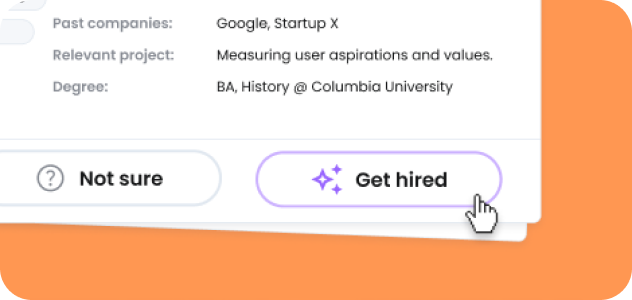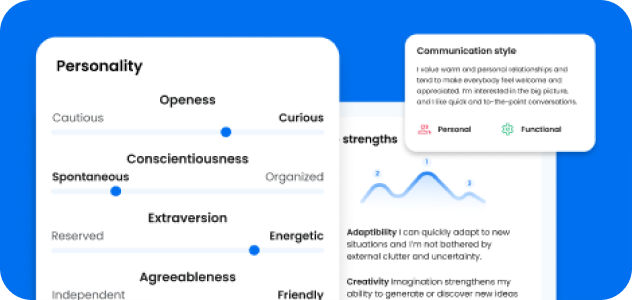Is HR a good career path? A short guide.
A solid, no bs career guide to career paths. Find job that fits you!
Is human resources a good career path?
Human Resources (HR) is a field that deals with the management of people in an organization. It is a crucial department that ensures the smooth running of a company by recruiting, training, and retaining employees.
Types of jobs in human resources
The most common jobs in HR include HR Generalist, HR Manager, HR Coordinator, HR Specialist, Talent Sourcer. An HR Generalist is responsible for managing all aspects of HR, while an HR Manager oversees the HR department. An HR Coordinator is responsible for administrative tasks, while an HR Specialist focuses on a specific area of HR, such as recruitment or training. An HR Director is responsible for the overall HR strategy of an organization.
How best to start a career in HR?
Starting a career in HR requires a combination of education and experience. Most entry-level HR jobs require a bachelor's degree in HR or a related field. However, some employers may accept candidates with a degree in a different field if they have relevant experience. To gain experience, you can look for internships or entry-level HR jobs. Networking and attending HR events can also help you make connections and learn more about the field.
What do jobs in the US and UK pay in HR?
The salary for HR jobs varies depending on the job role, location, and experience. According to Glassdoor, the average salary for an HR Generalist in the US is $57,000 per year, while an HR Manager earns an average of $86,000 per year. In the UK, an HR Generalist earns an average of £27,000 per year, while an HR Manager earns an average of £45,000 per year. However, these figures are just averages, and salaries can vary significantly depending on the company and location.
What are the downsides of a career in HR?
One of the biggest challenges of working in HR is dealing with difficult employees or situations. HR professionals often have to mediate conflicts and handle sensitive information, which can be stressful. Additionally, HR can be a demanding job that requires long hours and a lot of paperwork. However, for those who enjoy working with people and solving problems, the rewards of a career in HR can outweigh the challenges.
What are the fastest growing jobs in people and culture?
Some of the fastest-growing jobs in HR include HR Analytics Manager, HR Technology Manager, HRBP, and Diversity and Inclusion Manager. An HR Analytics Manager is responsible for analyzing HR data to improve the organization's performance. An HRTech Manager oversees the implementation and management of HR tech systems. A Diversity and Inclusion Manager is responsible for promoting diversity and inclusion in the workplace. HRBP (HR Business Partner) and People and Culture functions are becoming increasingly popular as HR shifts its mindset and role to be a more strategic element, especially those companies that are embracing remote work and hybrid organizational setups.
Your Fit for this job
Discover whether you’re a fit for this and other roles by taking our quick career discovery assessments

Salary data
A major reason why job markets are dysfunctional and inefficient is because of the lack of salary transparency in job postings. Knowing salary expectations on the candidate side and the salaries behind job postings would significantly cut down labor market and recruitment friction. That’s why we set out to gather - both based on user generated data and external data sources - the largest salary dataset on remote and hybrid jobs.
Check out our remote job board
Frequently asked questions
Is HR a male or female dominated career path
Traditionally, HR has been a female-dominated career path, with women comprising the majority of HR professionals. In recent years, there has been a push to encourage more gender diversity in HR. Nonetheless, there are still more women than men in HR roles, particularly in entry-level and mid-level positions.
What is the career path for human resources, or an HR manager?
The career path for human resources (HR) professionals can vary depending on the organization and industry they work in, but generally it follows a similar trajectory. HR professionals typically begin their careers in entry-level roles such as HR assistants or coordinators, where they perform administrative tasks such as managing employee records, conducting basic training, and providing support for more experienced HR staff. As they gain experience and develop their skills, HR professionals may move on to more senior roles such as HR generalists or specialists. These roles involve more strategic work, such as developing policies and procedures, implementing performance management programs, and working with department leaders to identify and address talent management needs. Ultimately, HR professionals may aspire to become HR managers or directors, where they oversee the HR function for an organization. In these roles, they are responsible for developing and implementing HR strategies that support the organization's goals, managing staff, and serving as a strategic partner to senior leadership.
To advance in their careers, HR professionals may pursue additional education or certification, such as a master's degree in HR or a certification from a professional HR association.
Free Personality tests
All of the following assessment tools explore an individual's personality thoroughly, although the Big5 is the gold standard among personality assessments. And what’s key is that are all available for free here:


